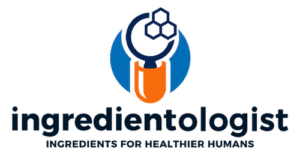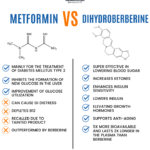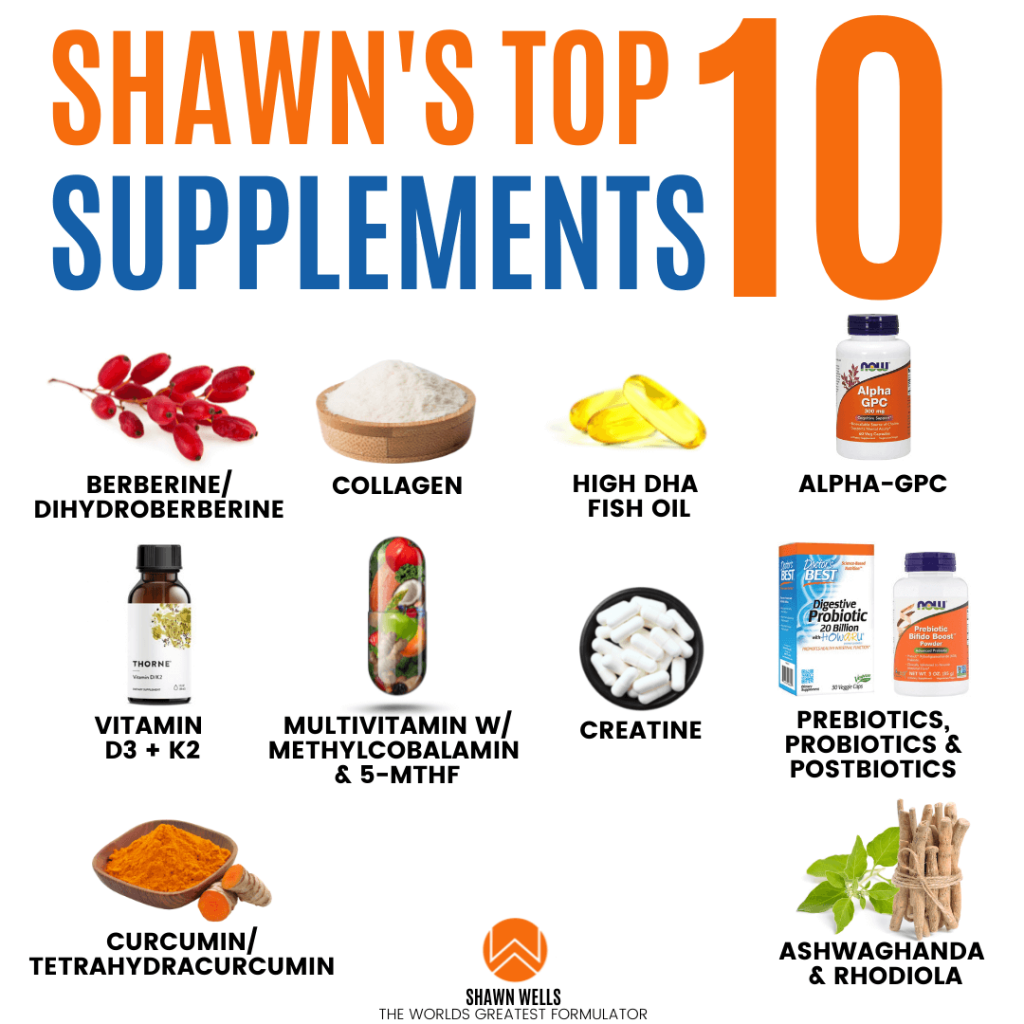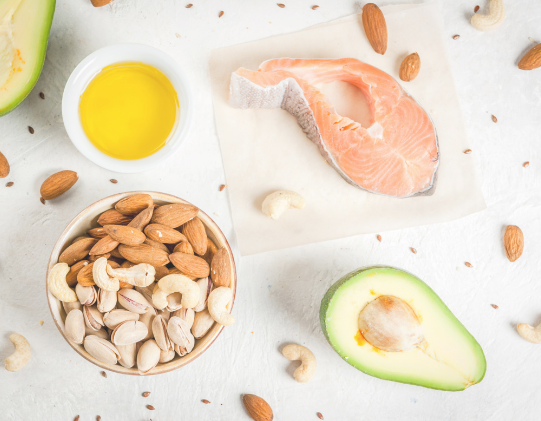
The Ultimate PMS Supplements Stack
January 22, 2024
6 Morning Biohacks To Start Your Day Right
January 28, 2024

Are you confused when it comes to knowing which supplements to take? Does walking down the supplement aisle at your local health food store leave you feeling overwhelmed and wondering how to choose the best ones? When a friend tells you about the latest and greatest thing they are taking, do you rush off to buy it hoping it will work for you too?
I get it. After formulating more than 500 products, patented over thirty novel ingredients I’m known as the World’s Greatest Formulator and The Ingredientologist but I didn’t start out that way.
Being in the dark, I was just like you – unaware of the benefits certain supplements held and how they could specifically help ME.
Now I speak regularly at conferences, on podcasts, TV and radio about the benefits of supplements in addition to healthy lifestyle habits like nutrition and exercise. Supplements can’t “fix” an unhealthy lifestyle but they can fill in the gaps when appropriately added and effectively dosed.
One of the top questions I’m regularly asked is, “What are the top supplements you recommend?”
This comes down to bio-individuality (meaning different bodies need different supplements). Generally though, here’s my recommended top 10 supplements!
The Top 10 Supplements You Should Be Taking
- Berberine/Dihydroberberine

I believe Berberine is the most important thing you can take. The name Shawn Wells has become synonymous with both Berberine and Dihydroberberine (patented as GlucoVantage®) and I’ve been quoted as saying it is the most powerful ingredient for battling aging and disease and promoting wellness. It helps with blood sugar management and has been shown to be more effective than Metformin.(1,2) Metformin has been shown to be anti-aging on a number of fronts, with one study showing two to two and a half extra years of life!(3)
Berberine outperforms Metformin and Dihydroberberine outperforms regular Berberine. Berberine or Dihydroberberine can help with advanced glycation end products (AGES). AGES leads to inflammation, oxidation and glycation which are the main pathways for aging and disease. There are a number of high quality products containing GlucoVantage® like The Genius Brand or Peak Performance. - Multivitamin with Methylcobalamin & 5-MTHF
Methylcobalamin, the naturally occurring and active form of Vitamin B-12 plays a role in synthesizing and metabolizing serotonin, a chemical that influences mood. 5-MTHF is an active form of folate that supports methylation. Up to 40% of the population has a genetic mutation called MTHFR that reduces the body’s ability to convert folic acid (the synthetic form of folate) to usable folate in the body. This mutation can also impair the absorption of certain vitamins and affect the body’s ability to detox. Taking methylfolate bypasses this conversion deficiency and can improve the health of those with this mutation. Thorne is a high-quality brand. - High DHA Fish Oil
It supports phospholipids in the brain and can reduce symptoms of depression. EPA and DHA are well-known for supporting heart and brain health. EPA levels correlate with mood while DHA improves memory and reaction time. DHA elevates levels of brain-derived neurotrophic factor (BDNF), a very important growth factor for the brain and central nervous system. DHA is more effective than EPA at improving markers of heart health and promoting healthy inflammatory response according to recent research. The recommended dose is at least 500 – 1000mg (possibly as high as 2000mg) of DHA daily. You can also boost levels with regular consumption of wild salmon, sardines, mackerel, anchovies, oysters and mussels. Great quality high DHA fish oil brands include NOW foods, Nordic naturals, Barlean’s and Carlson’s. - Prebiotics, Probiotics & Postbiotics
Prebiotics are short-chain fibers that are fermentable and used for fuel by the bacteria in the gut. Please note: any dysbiosis must be resolved before using. My favorites are FOS, GOS and a phage called PreforPro.
Probiotics are the good bacteria in your gut that is not only responsible for digestion but also about 80 percent of your immunity. Look for stable probiotics in spore form or that are microencapsulated. My favorite strain that is gaining great data is lactobacillus plantarum.
Probiotics are commonly recommended for many reasons and are popular due to their ability to help keep harmful microorganisms in check, promote a healthy balance of gut bacteria, support a healthy digestive tract and aid in digestion and nutrient absorption. While there are many brands out there, there is no one-size-fits-all option so you may have to experiment. I tend to lean toward formulas containing soil-based organisms or spore form since there’s solid evidence that they are more stable and can help support a healthy balance of gut bacteria.
Postbiotics are the biggest game-changer when it comes to your health. They are the bioactive compounds that probiotic bacteria produce when they consume prebiotics (fiber). Butyrate is one of the key short fatty acids that probiotics produce and it is pivotal in our overall health. (Butter is one of the best sources!) Tributyrin (patented as New Biome®) is the triglyceride form and it’s better absorbed than the free fatty acid. - Vitamin D3 + K2 – Low levels of Vitamin D have been associated with depression and both the sun and supplements can help. There are vitamin D receptors located throughout the body, including the various cells of the immune system. Vitamin D insufficiency is common and associated with increased susceptibility to viral infections. A recently published study found that vitamin D deficiency was associated with a significantly increased risk for COVID-19. A brand-new randomized controlled trial sounds encouraging—it showed that supplementation with vitamin D drastically reduced the severity of symptoms associated with COVID-19, reducing the rate of admission to the ICU from 50 percent (no vitamin D supplementation) to 2 percent (vitamin D supplementation). Supplementation is best tailored to one’s own vitamin D levels. Some people may need to supplement with 5,000-10,000 IU daily. Thorne Brand Vitamin D + K2 Liquid works well.
- Collagen
Collagen protein, more specifically hydrolyzed collagen peptides, contains an incredibly unique amino acid profile. Collagen is high in proline, hydroxyproline, glycine and arginine, which are the same building blocks that make up the collagen-containing tissues in your own body—such as your joint cartilage, tendons, ligaments and muscles. While high-quality protein like whey is important for building muscle, collagen protein is critical for promoting full-body recovery. I take up to 40 grams of collagen daily and many people will benefit from at least 10-20 grams per day. Usually, different types of collagen (e.g., I, II, III, V, and X) work best to support the most robust array of full-body benefits. The brand I recommend is Biotrust. - Curcumin/Tetrahydracurcumin
Curcumin is the powerful polyphenol that is thought to be responsible for many of the benefits associated with turmeric, including profound anti-inflammatory effects and a potent ability to support the body’s antioxidant and detoxification systems. Studies have revealed that curcumin has antioxidant, antibacterial, antifungal, antiviral and anti-inflammatory effects.(4) Not surprisingly, studies show that curcumin has beneficial effects on inflammation, cancer, joint health, blood sugar management, infections, osteoarthritis, Alzheimer’s, Parkinson’s, Multiple Sclerosis, mitochondrial function, athletic performance and more. Because of curcumin’s poor solubility and absorption, CurcuWIN (an optimized curcumin preparation) at 500–1,000 mg daily is recommended. A new form called Tetrahydrocurcumin (patented as CurcuPrime®) may even be superior to curcumin for inflammation, antioxidant activity and bioavailability. Dosage is 200 mg of twice per day. This form is just now hitting the market so look for products soon. - Alpha-GPC
Alpha-GPC is a naturally-occurring choline, which refers to a class of molecules that are used for various functions in the brain.
Supplementation with Alpha-GPC offers several potential mental and physical benefits including improved cognitive function, increased power output and increased growth hormone production. I prefer AlphaSize which supports normal cognitive function.
- Creatine
Creatine is a top studied sports nutrition supplement that is backed by strong evidence. It is a “no-brainer” supplement that everyone should try to see how it works for them. Many people will find that it improves performance, builds muscle and increases strength—and there may even be cognitive and detoxification benefits. For daily use, I recommend 5 g of Creapure Creatine Monohydrate. - Ashwagandha & Rhodiola
The adaptogens Ashwagandha and Rhodiola help normalize numerous systems and functions in the body, including the adrenals and the body’s stress response. Ashwagandha promotes health and longevity, combats stress, improves energy levels and boosts mitochondrial health.(5) Look for Ashwagandha extract that is standardized to at least 5% withanolides (beneficial compounds). A typical dosage is 300 mg twice daily. Look for high quality ingredients like Sensoril, KSM-66 or Shoden. Rhodiola Rosea is another one of my favorite adaptogens. Rhodiola improves concentration, memory and productivity.(6) Studies show that supplementation can enhance learning, improve sleep, reduce irritability and increase strength. I recommend a Rhodiola supplement containing 3% Rosavins and 1% Salidrosides (the “active” components of the adaptogen). Dosing is typically 288 – 680mg per day. Look out for the best quality RhodioPrime 6X with 6% salidrosides such as Morphogen Nutrition CALM.
Conclusion
Although this Top 10 Supplements list features what I regularly recommend, be aware that everyone has individual needs. You can’t out-supplement a bad diet so begin by eating more whole foods, moving more, drinking more water and getting adequate, quality sleep. Pinpoint the areas in your life that cause the most stress and make improvements.
Found this article interesting?
For more tips and the latest and greatest in health optimization, follow me on Instagram.
Sources:
- Wei W, Zhao H, Wang A, et al. A clinical study on the short-term effect of berberine in comparison to metformin on the metabolic characteristics of women with polycystic ovary syndrome. Eur J Endocrinol. 2012;166(1):99-105. doi:10.1530/EJE-11-0616.
- Yin J, Xing H, Ye J. Efficacy of berberine in patients with type 2 diabetes mellitus. Metabolism. 2008;57(5):712-717. doi:10.1016/j.metabol.2008.01.013
- https://www.forbes.com/sites/robinseatonjefferson/2019/09/09/cocktail-of-drugs-gives-first-hope-that-biological-age-can-be-reversed/amp/
- Aggarwal BB, Sundaram C, Malani N, Ichikawa H. Curcumin: the Indian solid gold. Adv Exp Med Biol. 2007;595:1-75. doi:10.1007/978-0-387-46401-5_1.
- Singh N, Bhalla M, de Jager P, Gilca M. An Overview on Ashwagandha: A Rasayana (Rejuvenator) of Ayurveda. Afr J Tradit Complement Altern Med. 2011;8(5 Suppl):208-213. doi:10.4314/ajtcam.v8i5S.9.
- Abascal K, Yarnell E. Increasing Vitality with Adaptogens: Multifaceted Herbs for Treating Physical and Mental Stress. Altern Complement Ther. 2003;9(2):54-60. doi:10.1089/107628003321536959.






